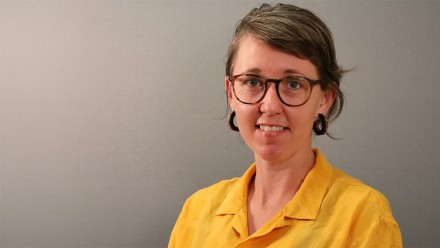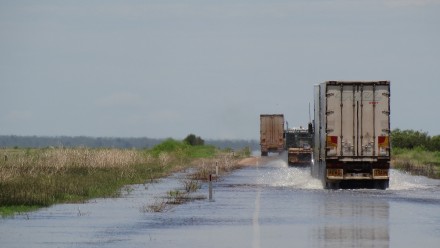Climate Essentials - March 2022 (Online)
Climate change is already affecting communities throughout Australia, with 2016 and 2020 tied as the hottest years on record at 1.2°C above pre-industrial times. As a result, Australia has also experienced changes in extreme weather, with more frequent and intense heatwaves, storms, flooding and bushfires. All government departments, agencies and institutes are required to plan, develop and implement strategies to address current and projected changes to our climate.
This short course has been designed for professionals who want to gain an overview of the latest developments around climate change. It will cover both the science of climate change and policy responses across a range of sectors.
The course is run by the ANU Institute for Climate, Energy & Disaster Solutions, bringing together leading climate researchers from across the University and around the world.
Scope
The course will provide a summary of the latest climate science, followed by an overview of climate change communications, climate adaptation, climate policy and economics, effective climate policy solutions, and the intersection of health and climate change. The course is tailored to consider the decisions faced by Australian government departments, non-government organisations and the private sector within an international climate change context.
Program
- Introduction and welcome - Professor Mark Howden (Director) and Rachel England (Executive Education Coordinator), ANU Institute for Climate, Energy & Disaster Solutions.
- Understanding climate change and extremes - Professor Mark Howden, ANU Institute for Climate, Energy & Disaster Solutions.
- Communicating climate change to psychologically complex creatures (humans) - Dr Bec Colvin, ANU Crawford School of Public Policy.
- Adapting to climate change and extremes - Emeritus Professor Ian Noble, ANU College of Science.
- Climate policy and economics - Professor Frank Jotzo, Head of Energy, ANU Institute for Climate, Energy & Disaster Solutions.
- Enabling climate policy solutions - Honorary Professor Stephen Bygrave, ANU Institute for Climate, Energy & Disaster Solutions.
- Health and climate change - Professor Kristie Ebi, Center for Health and the Global Environment (CHanGE), University of Washington.
A detailed version of the program and course logistics will be available soon to registrants.
Details
- The course is delivered online in real time. The staggered structure is designed to maximise engagement and is based on advice from ANU experts in online course design.
- The course covers six broad topics over three mornings; two sessions per day, each session punctuated by a short break and discussion of key points.
- Participation will be via the Zoom video conferencing tool, allowing direct interaction and discussion with lecturers and other course participants.
- Course timings 9:30am – 12:45pm each day.
Who should attend?
This course has been designed for professionals who are relatively new to working on climate change and want to gain an overview of the latest climate research, the impacts of climate change, and policy responses in terms of both mitigation and adaptation. It is expected that participants will come from a range of different sectors and that the diverse perspectives of participants will be useful for all attendees given that climate impacts are being felt across our economy and society.
Important information
- Cost - $1495 per person (including GST).
- Early bird price - 10% discount for registrations before 23 February 2022.
- Group price - 10% discount for bulk registrations of 3 or more participants from the same organisation.
- This course will take place subject to demand. Registrants will receive a full refund in the unlikely event that the course is cancelled. Places are limited and registrations are on a 'first come - first served' basis.












